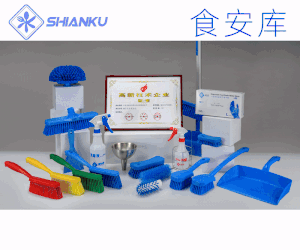食品伙伴網(wǎng)訊 2024年4月12日,歐盟食品安全局(EFSA)發(fā)布關(guān)于蘋果、葡萄、草莓、番茄和甜瓜中腈菌唑(myclobutanil)的最大殘留限量審查后確認(rèn)數(shù)據(jù)的評(píng)估。
部分原文報(bào)道如下:
The applicant Corteva Agriscience submitted a request to the competent national authority in Austria to evaluate the confirmatory data that were identified for myclobutanil in the framework of the MRL review under Article 12 of Regulation (EC) No 396/2005 as not available. To address the data gap related to the lack of information on the triazole derivative metabolites (TDMs), new residue trials analysing for TDMs were submitted on apples, grapes, strawberries, tomatoes and melons. Following the assessment of the submitted data, EFSA concluded that Article 12 confirmatory data gaps are considered addressed for pome fruits, grapes, cucurbits with inedible peel, strawberries and tomatoes. The new information provided required the assessment of consumer exposure to TDMs, which identified no consumer intake concerns for the crops under consideration. No information was provided to address the Article 12 confirmatory data referred to in Regulation (EU) 2020/770 for blackberries, gooseberries, bananas, aubergines/eggplants, lamb's lettuces/corn salads, beans (with pods), globe artichokes, hops, sugar beet roots and products of animal origin. For these commodities, the existing EU MRL could be lowered to the enforcement limit of quantification (LOQ). For kaki/Japanese persimmon and azararoles/mediterranean medlars, the existing EU MRL is set on the basis of Codex MRL in pome fruits. The applicant did not request maintaining a Codex MRL in these commodities, but should risk managers decide otherwise, the Article 12 data gap is considered addressed for kaki/Japanese persimmon while for azaroles/Mediterranean medlars, a risk management decision might be required. No consumer intake concerns were identified.
更多詳情參見:https://efsa.onlinelibrary.wiley.com/doi/10.2903/j.efsa.2024.8746
本文由食品伙伴網(wǎng)食品資訊中心編輯,有任何疑問,請(qǐng)聯(lián)系news@foodmate.net。
相關(guān)政策解讀











 地區(qū):
地區(qū):






 魯公網(wǎng)安備 37060202000128號(hào)
魯公網(wǎng)安備 37060202000128號(hào)



